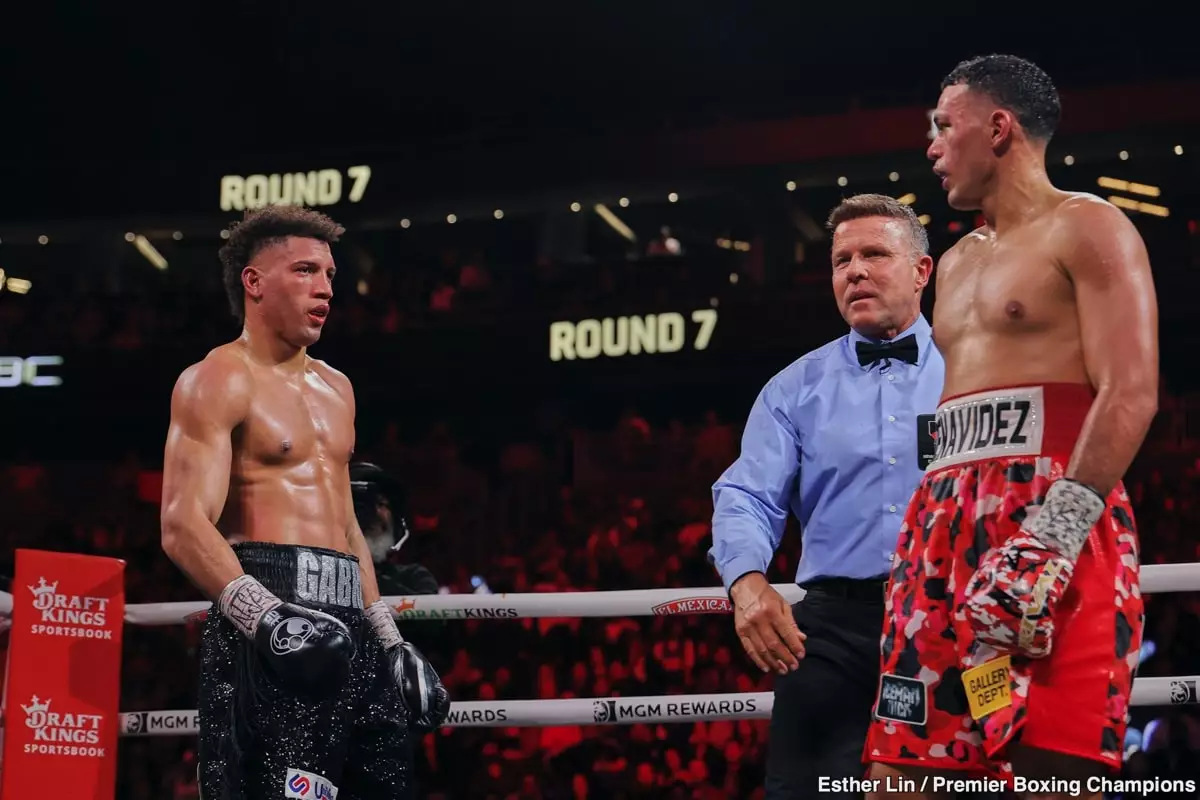In a sport laden with bravado, the narrative surrounding boxing champions often oscillates between confidence and fear. Recently, David Benavidez, known as the ‘Mexican Monster,’ challenged the narrative surrounding Canelo Alvarez’s reluctance to engage with him in the ring. By asserting that Canelo avoids mentioning his name because he considers him “the most dangerous fighter,” Benavidez sheds light on not just a personal rivalry but also the evolving mindset within the sport itself. This perspective exposes a complex interplay of fear, business strategy, and the essence of legacy in boxing.
Alvarez’s preference for fighters such as Terence Crawford, who, despite being smaller and less established in the weight class, presents a stark contrast to fighting Benavidez, ignites controversy. It forces us to question whether Canelo’s choices stem from a seemingly smarter business approach or an underlying fear of facing a formidable challenger. For boxing purists, the priority should be representing one’s weight class. When Canelo opts for a lighter opponent, the implications reverberate beyond the ringside, touching upon the very heart of the sport’s integrity.
Analyzing Fight Selection: Is It Business or Fear?
Benavidez articulates a sentiment echoed by many fans: the desperation for Canelo to face genuine competition. As he puts it, the choice of Crawford over him reeks of a preference for safety over challenge. A fighter’s choice of opponent can say much about their mentality; is the ultimate goal to create an electrifying spectacle or merely to pocket appealing checks? This dichotomy is even more pronounced in today’s financially-minded boxing environment.
While the argument can be made that fighters today are more acutely aware of their financial bottom lines, it raises further questions about the essence of a true champion. A champion should not shy away from challenges; they should actively seek to test their limits against the very best available. Canelo’s choice seems to deviate from this creed—not only does it hint at apprehension, but it also casts shadows over his legacy.
Boxing’s Diminishing Value of Legacy
The evolving landscape of boxing is marred by an increasing focus on financial gain at the expense of a fighter’s legacy. The participation of boxing organizations from Saudi Arabia in negotiating fights has been a double-edged sword. On one hand, it promises substantial financial rewards, on the other, it often results in lackluster matchups devoid of the competitive fire that fans yearn for. Benavidez rightly critiques the situation, articulating a sentiment shared by many: the hope that boxing can recapture its essence—battles that excite and inspire rather than mere ticket sales.
In this context, both Canelo’s brand and Benavidez’s talent are at odds. If Benavidez, undefeated with an impressive knockout record, can’t secure meaningful fight opportunities, it suggests a risky precedent for the sport. Champions are often expected to defend their titles against worthy challengers, and Canelo’s choice undermines this principle. Is the idea of taking risks for the sake of glory becoming obsolete? The cautionary tales of fighters prioritizing revenue over rivalry leave a bitter aftertaste; they threaten to dilute the sport’s allure.
Fan Perception: The Collective Outcry
Fan sentiment plays a significant role in professional boxing. Benavidez’s frustration echoes the disappointment of boxing enthusiasts who wish to see the best face the best. This collective outcry highlights a disconnect between fan desires and promoter strategies. The perception of fear surrounding Alvarez is more than just a passing notion; it speaks to a larger truth about trust and transparency within the sport. Fans wish to witness clashes that resonate on emotional levels, compelling narratives that showcase resilience, strength, and the willingness to put everything on the line for glory.
The boxing community quickly disseminates narratives in today’s digital age, shaping public opinion faster than ever. The lionization of fighters willing to take risks, alongside the vilification of those perceived to be ducking challengers, creates a charged atmosphere. Benavidez embodies the frustration of a generation craving authenticity in boxing, urging champions to honor their craft and put their mettle to the test.
In sum, the situation between Canelo Alvarez and David Benavidez raises provocative questions about fear, legacy, and the fans’ role in shaping the future of boxing. The sport must confront its identity—one that should balance the thrill of competition with the commercial realities of the modern age.

